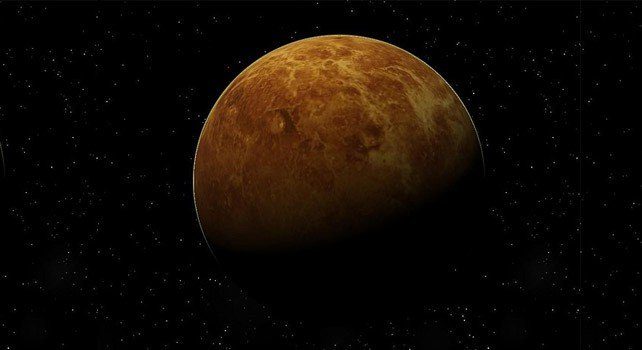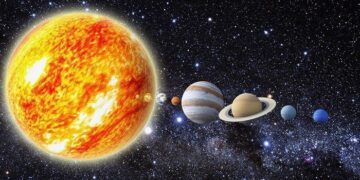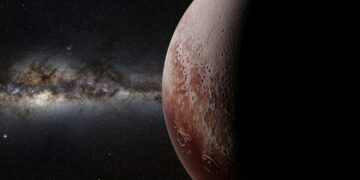Venus is the brightest planet in our night sky, but what are the facts about this planet?
Check out these top fifteen interesting facts about Venus!
Venus and Mercury are the only planets within our solar System not to have any moons orbiting them.
Venus is the only planet in our solar system to rotate clockwise! Due to its very slow rotation, experts have been lead to believe that at one time far in the past, something may have collided with the planet that changed its rotation.
After the Sun and the Moon, Venus is the next brightest object in our night sky.
There are more volcanoes on the surface of Venus then there are on any other planet within our Solar System. We are unsure on how active these volcanoes are, if at all.
Venus can be bright enough in the night sky to cast shadows! These types of shadows are known as “Venusian shadows”!
A day on Venus would last for 243 Earth days, whilst an entire year on Venus would last for 224.7 days – making a year on Venus shorter than a day!
Due to the thick atmosphere on Venus, temperatures on the surface can reach up to a staggering 470 degrees Celsius!
The ancient Babylonians used to track Venus’ path though the skies in records that date back as far as 1600 BC.
Venus is named after the Roman goddess of love and beauty.
Venus is the only planet named after a female.
Venus is often said to be Earth’s twin sister, as they are both of similar sizes, mass and density.
The surface of the planet is extremely dry due to the surface temperature. If there were any liquid there, the heat would cause the liquid to boil away instantly.
At times during history, Venus was known as “Lucifer”. Lucifer means “Light-Bringer”, and with Venus being one of the brightest objects in the night sky, it’s easy to see where this name came from. Sadly this name never really stuck, and is no longer in use.
The planet’s atmosphere is mostly made up from Carbon Dioxide.
Maat Mons, Venus’ largest volcano, stands at 5 miles high!

















